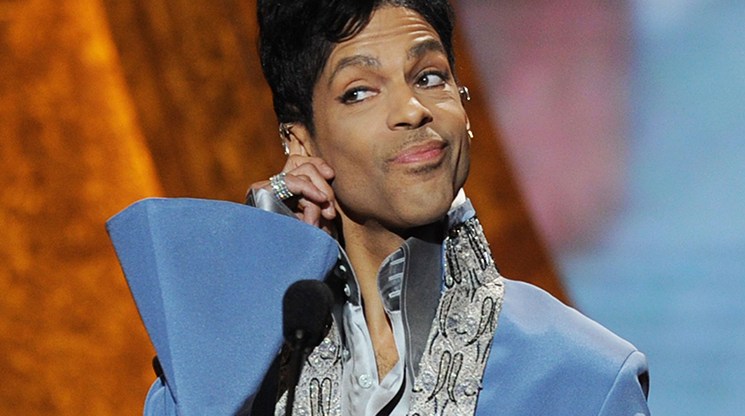Prince accused the music industry of trying to ‘ram Katy Perry and Ed Sheeran down our throats’ before his death

Prince in 2011. (Kevin Winter/Gett)
During his lifetime, Prince was no stranger to controversy.
He famously kicked Kim Kardashian off stage for not dancing, pulled his entire catalogue from numerous streaming services and had a decade long battle with his label Warner Bros over his publishing contract.
The singer was also incredibly outspoken about the way he believed the internet had negatively affected music.
His feelings about the music industry are made clear in a letter found at Prince’s home, Paisley Park in Minnesota, in which he accuses the music industry of “trying to ram Katy Perry and Ed Sheeran down our throats”.
The letter was found by Dan Piepenbring, who was hired in early 2016 by the singer to work alongside him to write his memoir The Beautiful Ones.
Prince died from an accidental fentanyl overdose aged 57 on April 21st 2016, just three months into the project. Piepenbring, a Prince fan, decided to complete the project they started and it’s due to be released on 29 October.
In an interview with The Guardian Piepenbring explained Prince kept a paper trail of his life, including everything from “handwritten lyrics from across his career” and wedding programmes. In a letter found amongst this collection, Prince details his dislike of pop music and takes jabs at artists including pop artists Katy Perry and Ed Sheeran.
Prince wrote: “We need to tell them that they keep trying to ram Katy Perry and Ed Sheeran down our throats and we don’t like it no matter how many times they play it.”
His comments reflect his views on the commercialisation of digital music. The ‘When Doves Cry’ singer told The Guardian that he personally couldn’t stand digital music. “You’re getting sound in bits. It affects a different place in your brain. When you play it back, you can’t feel anything. We’re analogue people, not digital.”
Despite his aversion to digital music in the years before his death, Prince became one of the first artists to sell an album online, and won a Webby Lifetime Achievement award for “visionary use of the internet to distribute music”.

